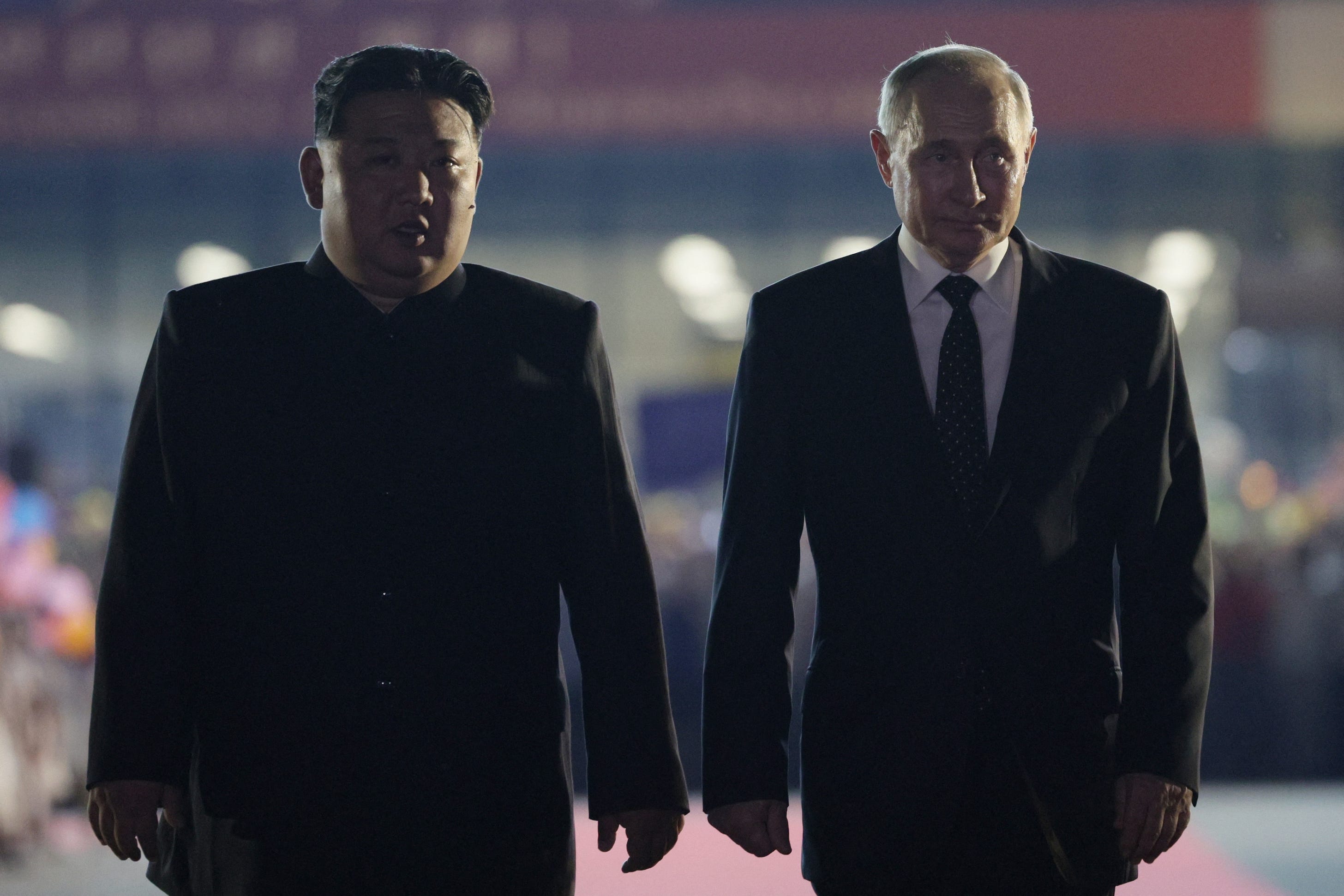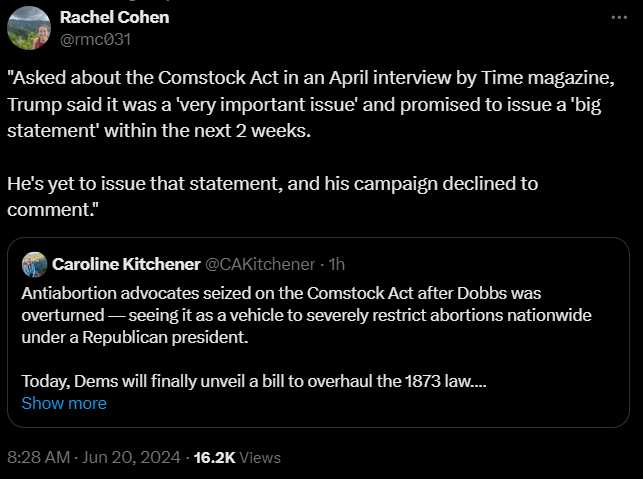We’re big fans both of decarbonization and of reliable electricity, so two thumbs up on this one from us! (One assumes the Democrats don’t mind the job creation, either?) Happy Thursday. The Real WorldThings are hopping in American politics. There’s a striking new presidential poll out (encouraging for Biden!). There are end-of-term Supreme Court decisions (which could be good for Biden, if he can make sufficiently alarming the prospect of even more Trump judicial appointments). There’s next week’s presidential debate (who knows?!). But there’s also a real world out there, where things are also hopping. A striking piece in the Wall Street Journal is a reminder that we shouldn’t forget about it in our (understandable) preoccupation with our election. Here’s the heart of the report by the veteran journalists Warren Strobel and Mike Gordon:
This report of deepening cooperation by the dictators underscores an observation Anne Applebaum made in our new Conversation:
Which actually brings us back to . . . our election:
So our detour into foreign policy ends back home. It’s a dangerous world, whose dangers we can’t hide from. And it’s a world made far more dangerous by the threat of Trump and Trumpism here in the United States. Which is why many of us who might prefer not to worry so much about the attitudes of uninformed voters in random swing states feel we have to do so. One wishes we didn’t. One wishes so much weren’t at stake this year, both for the United States and the world. But as a great American, Mr. Rogers, taught us a half century ago: “No kinds of wishes make things come true.” —William Kristol Mr. Putin Goes to PyongyangIt’s not a good time for Vladimir Putin, whatever you may have heard about his newly confident posture. His Ukraine ceasefire proposal, which demands that Ukraine withdraw its troops from the four regions Russia has formally annexed (but isn’t even close to taking over) and abandon the goal of joining NATO, has been laughed off as a transparent attempt to undercut Ukraine’s peace summit in Switzerland. That summit, meanwhile, went pretty well. Eighty of the 92 countries attending signed the joint communiqué outlining Ukraine’s peace plan—among them, notably, Russia-friendly Hungary and Serbia. (While Saudi Arabia did not sign the document, its decision to send its foreign minister to the summit still counts as a diplomatic success for Ukraine: Originally, the Saudis were going to stay away because of Russia’s absence.) On the eve of the summit, the Group of Seven confirmed a new $50 billion loan to Ukraine, to be repaid using interest from frozen Russian assets. And even as Putin was calling for a lifting of Western sanctions as part of his bogus ceasefire plan, the Biden administration has drastically expanded sanctions on Russia—and stepped up the threat of “secondary sanctions for foreign financial institutions that deal with Russia’s war economy.” (That mainly means China.) The sanctions forced a suspension of trading in dollars and Euros on the Moscow Exchange, Russia’s main financial marketplace. But perhaps the most embarrassing part was Putin’s triumph of the week: the trip to North Korea to meet with Kim Jong Un and sign a partnership deal. What this deal will mean in practice remains to be seen. The agreement that the two countries will provide each other with military assistance in the event of foreign aggression is deliberately vague. The North Korean artillery shells and missiles that Russia says it isn’t getting will no doubt keep coming. (Arms trading with North Korea is banned under sanctions imposed by the United Nations in 2006; on his visit to Pyongyang, Putin denounced these sanctions as the result of manipulation by “the USA and their allies” and suggested that they should be revised, but that proposal is unlikely to get anywhere.) A stronger North Korea/Russia alliance could certainly pose new problems for the West, and for Asian democracies as well. And yet the trip to Pyongyang also underscores Russia’s weakness—starting with the fact that at this point, Russia needs assistance from North Korea more than vice versa. Putin is widely seen as, in the words of CNN national security analyst Steve Hall, “going hat in hand” to Kim. The visit, and the hype about it in the Russian state media, also underscores Putin’s pariah status in the civilized world. “The very fact of the Russian president’s trip to the DPRK is a world sensation,” proclaimed Russian television’s Channel One. “It’s been a long time since Putin has been met with such pomp,” gushed the daily Komsomolskaya Pravda. When you’re reduced to bragging about how grandly you’re being received in North Korea, almost certainly the worst dictatorship on earth right now, it’s a sure sign that things have gone very wrong somewhere along the way. It’s also notable that during their conversation, both Putin and Kim evoked Soviet-North Korean cooperation in the good old days. And indeed, their meeting of “ardent friendship” (to quote Putin) looked like something out of a Soviet-era time warp, with massive Soviet-style portraits of the duo looming over Kim Il Sung Square, where cheery children in school uniforms lined up with flags and balloons. Putin’s visit, with all its rhetoric about combating Western imperialism and hegemony, symbolizes the North-Koreanization of Russia since 2022. At one point, Putin and his host toured Kim Il Sung Square to the sound of the famous Soviet “Song of the Motherland,” whose refrain (in my translation) goes thus: In the world I know no other country Written in 1936 on the eve of Joseph Stalin’s Great Terror, it’s the perfect soundtrack for a Russia/North Korea lovefest in 2024. —Cathy Young Catching up . . .
Cheap ShotsYou’re a free subscriber to Bulwark+. For unfettered access to all our newsletters and ad-free and member-only podcasts, become a paying subscriber. Did you know? You can update your newsletter preferences as often as you like. To update the list of newsletter or alerts you received from The Bulwark, click here. |
Why Dictators Want Trump
06:24
0





